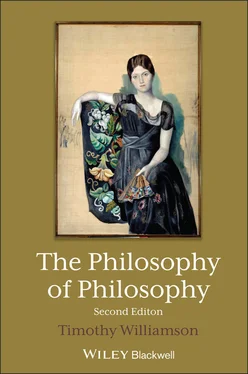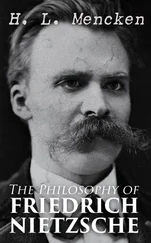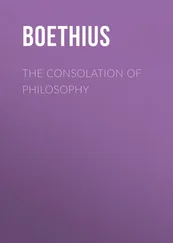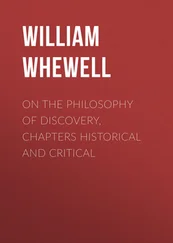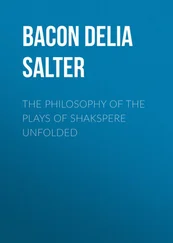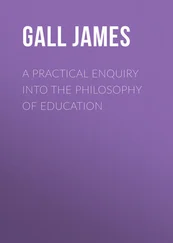The conceptual turn constitutes a much broader movement than the linguistic turn. It is neutral over the relative priority of language and thought. We think and talk about things – truly or falsely depending on whether they are or are not as we think or say they are. The aboutness of thought and talk is their intentionality ; the conceptual turn puts intentionality at the centre of philosophy. This terminology indicates how little the conceptual turn is confined to what would ordinarily be called “analytic philosophy.” The phenomenological tradition may constitute another form of the conceptual turn. In the hermeneutic study of interpretation and various shades of postmodernist discourse about discourse the conceptual turn takes a more specifically linguistic form.
Have we stretched our terms so far that all philosophy is conceptual philosophy? No. On a natural view, concepts constitute only a small fraction of a largely mind-independent reality. That the goal of philosophy is in some sense to analyze that small fraction is no platitude. To put it very schematically, let absolute idealism about the subject matter of philosophy be the view that philosophy studies only concepts, in contrast to ontological absolute idealism , the wilder view that only concepts exist. 2Although absolute idealism about the subject matter of philosophy does not entail ontological absolute idealism, why should we accept absolute idealism about the subject matter of philosophy if we reject ontological absolute idealism? Of course, we might reject absolute idealism about the subject matter of philosophy while nevertheless holding that the correct method for philosophy is to study its not purely conceptual subject matter by studying concepts of that subject matter. This methodological claim will be considered later; for present purposes, we merely note how much weaker it is than those formulated by Ayer and Dummett.
The claim that concepts constitute only a small fraction of reality might be opposed on various grounds. Recall that concepts were defined as the constituents of thought. If thought consists of Russellian propositions, complexes of the objects, properties, relations, and other elements of reality the proposition is about, then those objects, properties, relations, and other elements of reality are by defi nition concepts. In that case, ontological absolute idealism may be a triviality, because whatever exists is a constituent of various Russellian propositions, and thereby counts as a concept. However, even conceptual philosophers who accept the Russellian view of propositions will distinguish conceptual structure , the structure characteristic of propositions, from other sorts of structure. For example, they will analyze the atomic proposition that this crystal is translucent as the object-property complex )this crystal, translucency*, but they will not regard it as any of their business to analyze the structure of the crystal itself: that is chemical structure, not conceptual structure in the relevant sense, otherwise the proposition would not be atomic. Their goal for philosophy – to analyze the structure of thought – is still only to analyze one sort of structure among many. Thus one might accept the Russellian view of propositions and still oppose the conceptual turn, on the grounds that philosophy can appropriately investigate general features of nonconceptual structure too, such as the general mereological structure of physical objects.
Alternatively, take a more standard view of concepts, as something like modes of presentation, ways of thinking or speaking, or intellectual capacities. Still, the claim that concepts constitute only a small fraction of reality might be accused of violating Dummett’s second tenet by confusing thought with the process of thinking. Almost everyone agrees that psychological events constitute only a small fraction of reality, but that is not yet to concede that thought in a non-psychologistic sense is similarly confi ned. John McDowell (1994: 27), for instance, argues: 3
[T]here is no ontological gap between the sort of thing one can mean, or generally the sort of thing one can think, and the sort of thing that can be the case. When one thinks truly, what one thinks is what is the case. So since the world is everything that is the case … there is no gap between thought, as such, and the world. Of course thought can be distanced from the world by being false, but there is no distance from the world implicit in the very idea of thought.
For McDowell, the sort of thing one can think is a conceptual content: the conceptual has no outer boundary beyond which lies unconceptualized reality. He denies the accusation of idealism on the grounds that he is not committed to any contentious thesis of mind-dependence.
The sort of thing that can be the case is that a certain object has a certain property. McDowell’s claim is not that the object and the property are concepts, but merely that we can in principle form concepts of them, with which to think that the object has the property. Indeed, we can in principle form many different concepts of them: we can think of the same object as Hesperus or as Phosphorus. In Fregean terms congenial to McDowell, different senses determine the same reference. He admits “an alignment of minds with the realm of sense, not with the realm of reference … thought and reality meet in the realm of sense” (1994: 179–80). For objects, his claim that the conceptual is unbounded amounts to the claim that any object can be thought of. Likewise for the sort of thing that can be the case: the claim is, for example, that whenever an object has a property, it can be thought, of the object and the property, that the former has the latter. But, on a coherent and natural reading of “the sort of thing that can be the case,” such things are individuated coarsely, by the objects, properties, and relations that they involve. Thus, since Hesperus is Phosphorus, what is the case if Hesperus is bright is what is the case if Phosphorus is bright: the objects are the same, as are the properties. On this reading, McDowell’s claim “When one thinks truly, what one thinks is what is the case” is false, because what one thinks is individuated at the level of sense while what is the case is individuated at the level of reference. Although McDowell’s claim is true on weaker readings, they will not bear the weight his argument puts on them.
McDowell’s argument in any case seems to require the premise that everything (object, property, relation, state of affairs, …) is thinkable. That premise is highly contentious. What reason have we to assume that reality does not contain elusive objects , incapable in principle of being individually thought of? Although we can think of them collectively – for example, as elusive objects – that is not to single out any one of them in thought. Can we be sure that ordinary material objects do not consist of clouds of elusive sub-sub-atomic particles? We might know them by their collective effects while unable to think of any single one of them. The general question whether there can be elusive objects looks like a good candidate for philosophical consideration. Of course, McDowell does not intend the conceptual to be limited by the merely medical limitations of human beings, but the elusiveness may run deeper than that: the nature of the objects may preclude the kind of separable causal interaction with complex beings that isolating them in thought would require. In Fregean terminology again, a sense is a mode of presentation of a referent; a mode of presentation of something is a way of presenting it to a possible thinker, if not an actual one; for all McDowell has shown, there may be necessary limitations on thinking. 4Although elusive objects belong to the same very general ontological category of objects as those we can single out, their possibility still undermines McDowell’s claim that we cannot make “interesting sense” of the idea of something outside the conceptual realm (1994: 105–6). We do not know whether there actually are elusive objects. What would motivate the claim that there are none, if not some form of idealism very far from McDowell’s intentions? We should adopt no conception of philosophy that on methodological grounds excludes elusive objects. 5
Читать дальше
